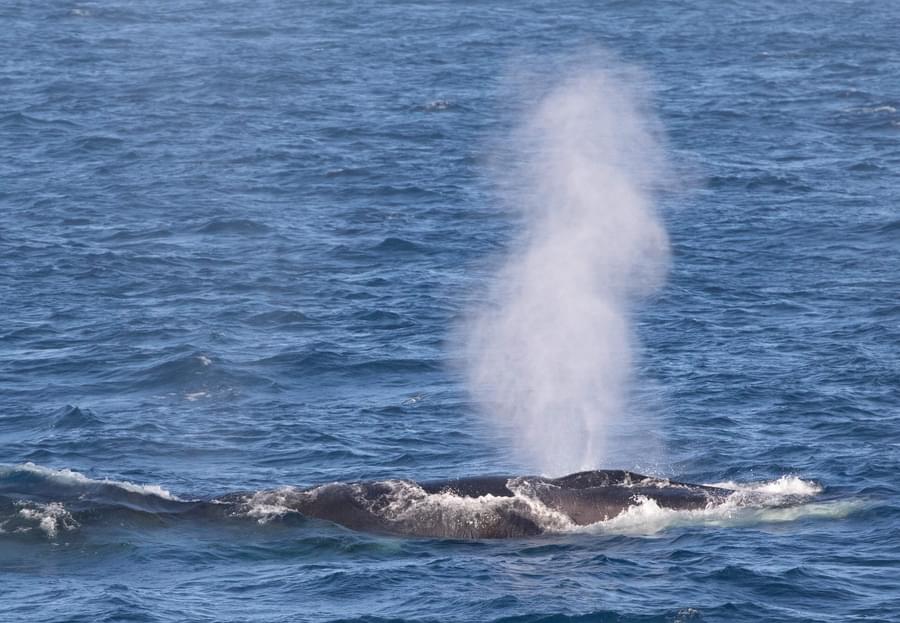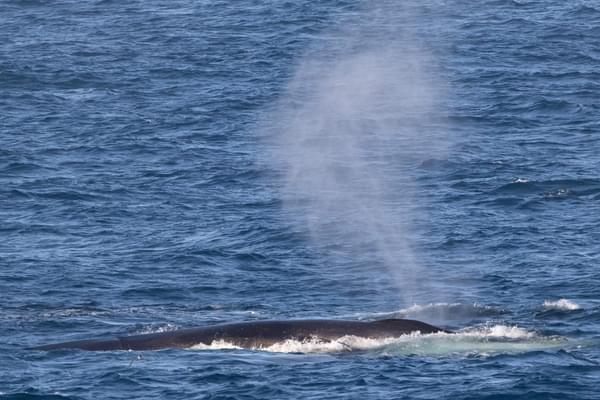Many of you will have been following ORCA’s ongoing Southern Ocean Distance Sampling Project in Antarctica. In 2022/23, teams of our experienced Marine Mammal Surveyors began collecting data on large whales in the Southern Ocean from Hurtigruten’s MS Fram vessel, working in collaboration with the International Association of Antarctic Tour Operators (IAATO), British Antarctic Survey, Hurtigruten, and the Government of South Georgia and the South Sandwich Islands. The project aims to better understand the abundance and distribution of recovering whale populations in the Southern Ocean, with a particular focus on large baleen whales around South Georgia and the Antarctic Peninsula. ORCA devised and conducted a bespoke research project for the 2022-2023 Antarctic season, and this important research is now well underway for the second season.
By identifying high density areas, ORCA hopes to enable mitigation measures to be implemented to protect these incredible animals in an area where shipping traffic is increasing. Data collected last year has already been used to safeguard whales in these areas!
To give you a snapshot of what the survey team is encountering, these are the results from just one day - Thursday, February 1st.
The MS Fram was sailing from Stanley in the Falklands to South Georgia and travelling towards Shag Rocks, a group of six rocky islets 150 miles west of South Georgia. The numbers of whales was astonishing, with 65 sightings of 142 individual whales in a single day.
These included sightings of four of the target species for our research into recovering whale populations in terms of their distribution and abundance - Blue whale (4), humpback whale (23), southern right whale (1), fin whale (20).
The blue whale sightings were of particular interest as recent surveys have counted less than 50 in this area. The team had amazing views of a southern right whale which was both unusual and special as they are not often seen in the study area due to low population numbers here.
There were also sightings of a beaked whale and 107 unidentified whales. The large swell made the identification of all the individual whales difficult, but their large blows enabled them to be spotted and recorded.
The Fram’s crew were carefully transiting at a whale-safe speed of 10 knots or less, so the guests were able to fully enjoy the spectacle around the ship - most (but not all) of the sightings occurred within the 10 knot whale area around South Georgia.
Surveys will continue to take place for another month, so we’ll give you an update on the overall results in a few weeks.




Being hit by ships is the single biggest threat to large whales globally and needs urgent action before vulnerable populations are wiped out.
Donate today at www.orca.org.uk/donate to support our cutting edge ship strike research and help find a solution to this threat.

